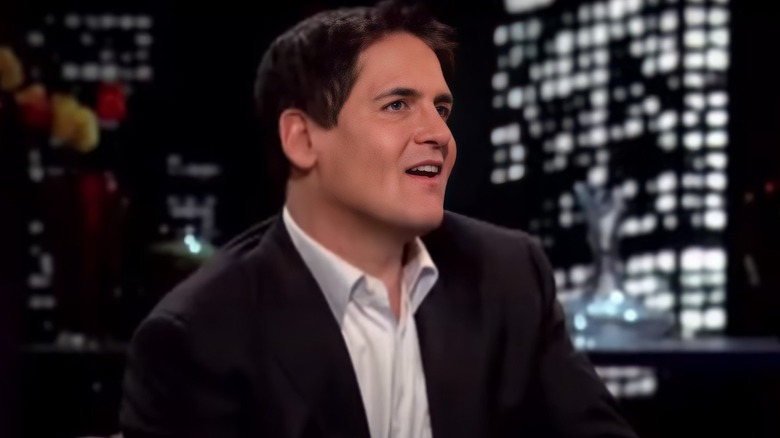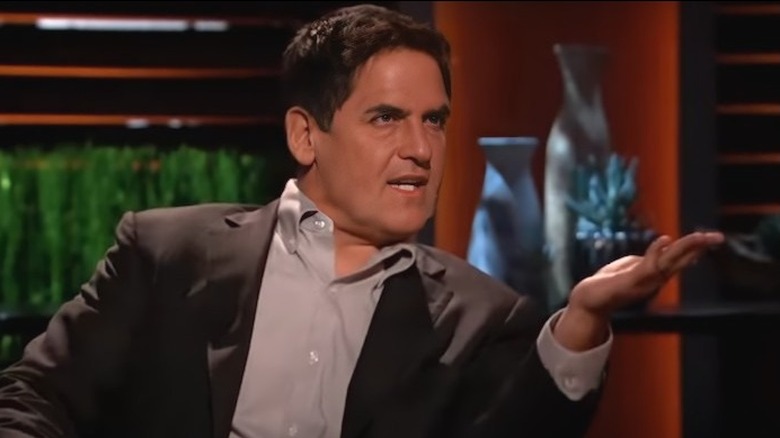What Is Shark Tank Investor Mark Cuban's Reasoning For Changing Deals Behind-The-Scenes?
For a show premised on the concept of entrepreneurs pitching their business ideas to a group of angel investors, "Shark Tank" is a surprisingly captivating and high-octane reality show. It's easy to become invested yourself as contestants put themselves through the gauntlet of convincing the so-called sharks to put their faith — and more importantly, their money — behind them. But like any other reality TV show, what you see isn't necessarily what happens behind the scenes.
The sharks include billionaire Mark Cuban, who has developed a reputation for being a nice guy, at least for someone in his tax bracket. Even so, Cuban gets down to brass tacks with the businesspeople he's funding after the cameras stop rolling, and he's been known to renegotiate his position with contestants. And he's not the only one. After another shark, Kevin O'Leary, offered contestant Vladislav Smolyanskyy $100,000 for a controlling share of his toy company, Pinblock, it wasn't long before Smolyanskyy received a call from O'Leary telling him that the deal was off.
As Smolyanskyy told Forbes, he'd been counting on the deal O'Leary offered him on air to stay afloat. The episode of "Shark Tank" he appeared on drove a spike in sales, nearly depleting his inventory, and he could not afford to manufacture new inventory without that investment capital. According to Forbes, 73% of deals were either altered or fell through in the end during the first seven seasons of "Shark Tank."
According to Cuban, there are always good reasons he might call off a deal, or offer less capital than he said he would on air. Simply put, new details about a business tend to come to light once the sharks actually look at a contestant's books and study the market.
Mark Cuban renegotiates the terms of his investments based on new information
While Mark Cuban, one of the billionaire investors on the reality investment show "Shark Tank," may have a reputation as a nice guy, there's a hard limit to how nice a person can be if they want to join the ranks of the economic elite. According to Forbes, Cuban has only closed on 54% of the 37 deals the publication tracked across the show's first seven seasons, with Cuban telling the magazine their number is probably an overcount.
Cuban's first explanation for his rescind rate? Some contestants come on the show for publicity and don't actually want to take him on as an investor. According to the billionaire, those contestants "just came for the commercial." But even for those he feels are negotiating earnestly, there are still reasons he might renegotiate. Sometimes, he finds, "what [an entrepreneur] said doesn't match up with what we see in diligence or creates other questions." Specifically, he wants to make sure that his investments are going into the business, rather than being used to line the founder's pockets.
But Cuban can only speak for himself, not the other investors, and many businesspeople who have appeared on "Shark Tank" have come to feel that the investors are, in fact, sharks. One contestant who was offered a $1.5 million investment for his vegan restaurant told Forbes, "With all that control they were trying to put on it, I felt like it was not going to be beneficial for the business in the long run." At the end of the day, sharks are free to alter the deal, and all entrepreneurs can do is pray they don't change it too much.

